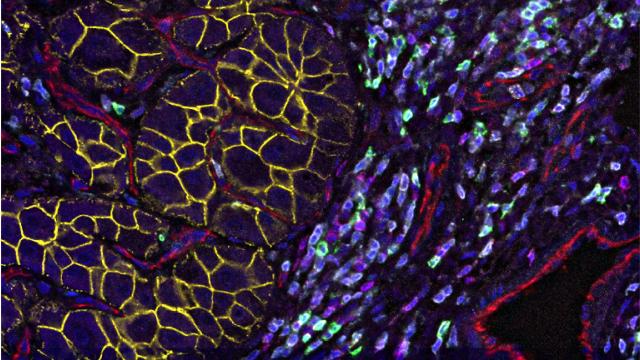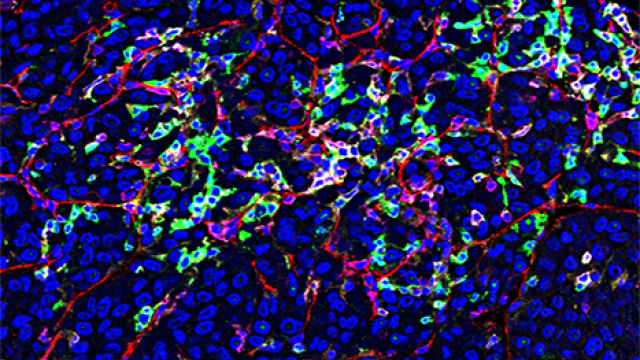
Phylogenetic tree of 94 viral strains corresponding to 153 viral peptides that are beneficial virus-related antigens. Colors in the circles indicate different virus classifications at the species (inner circle) and genus (outer circle) level.
CCR researchers discovered that a protein found on some common cold viruses can elicit a robust immune response against liver cancer. The team, led by Xin Wei Wang, Ph.D., Acting Co-Chief and Senior Investigator in the Laboratory of Human Carcinogenesis, Lichun Ma, Ph.D., Stadtman Investigator in the Cancer Data Science Laboratory, and Man-Hsin Hung, Research Fellow in Wang’s lab, reported their findings May 8, 2025, in Gut.
One of the biggest challenges in cancer immunotherapy development is targeting tumor-associated antigens (TAAs), which often resemble normal body proteins and frequently change as tumors evolve. This makes it difficult to develop therapeutics to target specific TAAs with lasting immune responses. This study found that CE1, a protein segment found on common cold viruses such as enteroviruses and rhinoviruses, can activate certain immune cells that are also involved in robust anti-cancer responses. CE1 is stable, highly immunogenic, and activates host immune cells to launch a multi-layered attack on liver cancer cells. People who had stronger immune responses to CE1 showed better health outcomes, suggesting that past viral exposures may help protect against cancer.
The CE1 protein’s immune-stimulating properties may reflect a beneficial, evolutionarily preserved relationship between viruses and the human immune system. These findings open exciting new possibilities for viral protein-based immunotherapy that could be used for both cancer treatment and prevention.
Citation: Ma L, et al. Gut. 2025 May 8. Epub ahead of print.
Writeup information provided by Xin Wei Wang, Ph.D.


